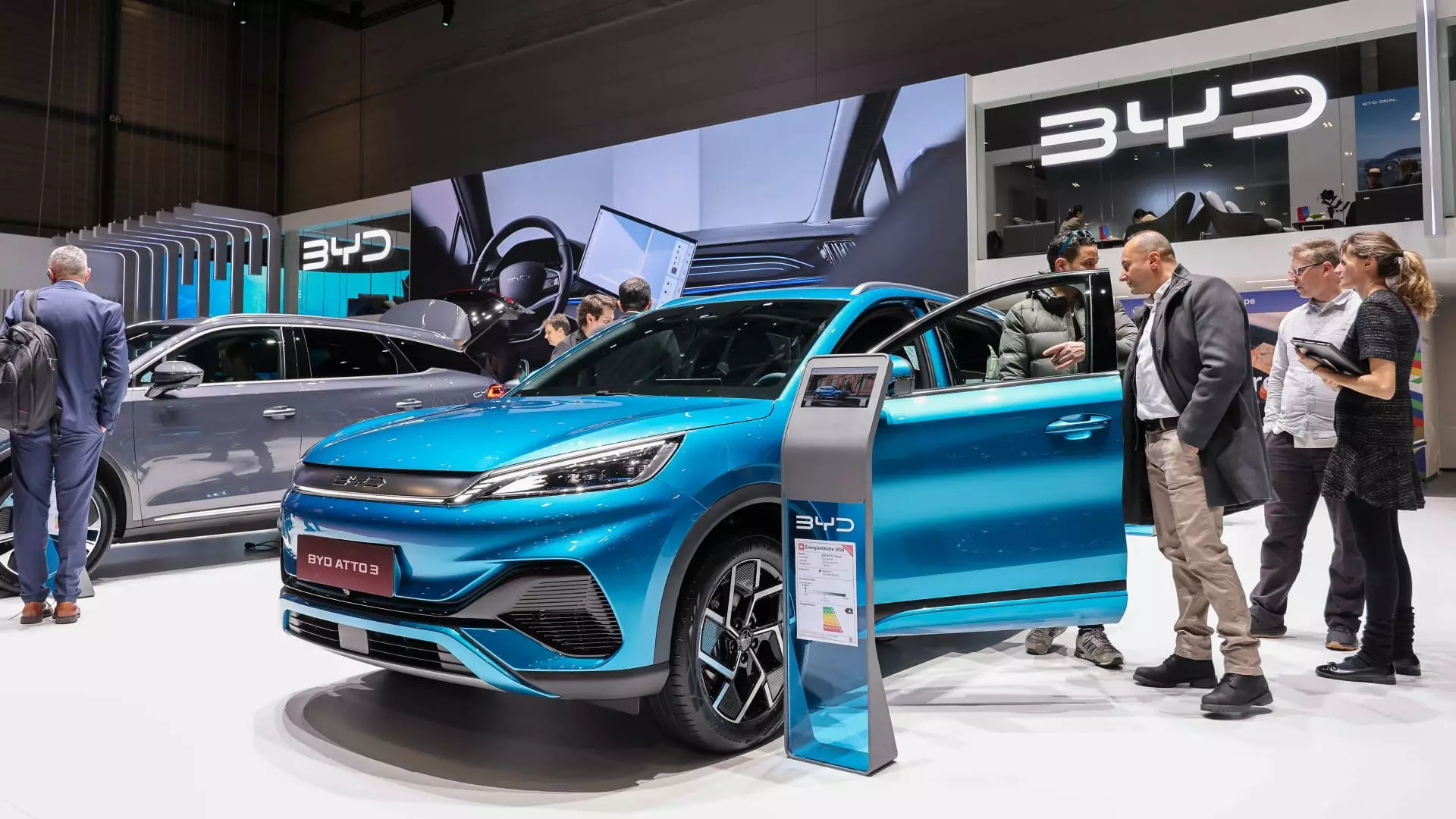The presence of China-made electric vehicles (EVs) in Europe is on the rise, with these vehicles expected to account for more than a quarter of EV sales in the continent this year. The European Federation for Transport and Environment (T&E) reported that about 19.5% of battery-powered EVs sold in the EU last year were from China. This number is expected to increase to just over 25% by 2024, signaling a significant growth in market share for Chinese EV brands.
Chinese brands such as BYD are ramping up their global expansion efforts, contributing to the increasing market share of China-made EVs in Europe. While most EVs sold in the EU are from Western brands like Tesla, Chinese brands alone are projected to hold an 11% market share in 2024. This share could potentially grow to 20% by 2027, according to T&E’s predictions.
The European Commission is currently investigating subsidies given to electric vehicle makers in China to determine if they are unfairly undercutting local companies. Non-Chinese brands that manufacture and ship EVs from China, such as Tesla and BMW, may also be included in this subsidy investigation. The investigation highlights the need for fair competition and transparency in the EV market.
According to experts like Tu Le from Sino Auto Insights, China’s incentives for EV development have led to a surge in startups and increased battery cell capacity in the country. This has paved the way for affordable EVs, putting the EU and the US at a disadvantage in terms of EV affordability. European automakers are struggling to keep up with China’s advancements in EV technology and production.
T&E suggests that raising EV tariffs to at least 25% would make medium electric cars from China more expensive than their EU counterparts. However, this would require Europe to become more self-sufficient in battery cell production to support the domestic EV industry. The challenge lies in balancing the need for affordable EVs with the goal of promoting local manufacturing and sustainability.
To mitigate policy risks associated with shipping China-made EVs to Europe, manufacturers like Tesla and BYD are increasing their manufacturing efforts in the continent. This strategic move allows these companies to be closer to their target market and reduce logistical challenges associated with importing vehicles from China. It also demonstrates a commitment to meeting the growing demand for EVs in Europe.
The rise of China-made electric vehicles in the European market presents both challenges and opportunities for stakeholders in the EV industry. As Chinese brands expand their global presence and market share, European regulators and automakers must navigate the complexities of trade policies, subsidies, and sustainability goals to ensure a fair and competitive EV market for all players. The shift towards electric mobility is reshaping the automotive industry, and collaboration between different regions and market players will be crucial in driving innovation and meeting the growing demand for sustainable transportation solutions.


Leave a Reply